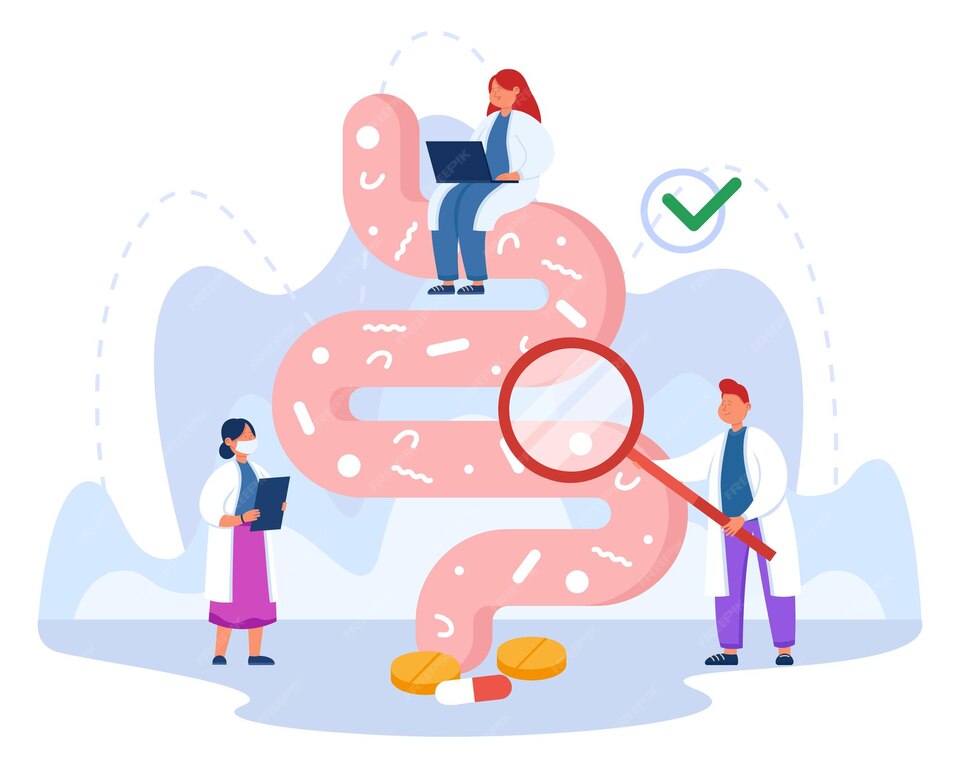Last updated on April 23rd, 2025 at 04:27 pm
 IBS treatment typically involves a combination of lifestyle modifications, dietary changes, medications, and, in some cases, psychological interventions. The primary goals of IBS treatment are to alleviate symptoms, improve quality of life, and help individuals better manage their condition.
IBS treatment typically involves a combination of lifestyle modifications, dietary changes, medications, and, in some cases, psychological interventions. The primary goals of IBS treatment are to alleviate symptoms, improve quality of life, and help individuals better manage their condition.
Irritable Bowel Syndrome (IBS) is a common gastrointestinal disorder. It is characterized by a variety of symptoms, including abdominal pain, bloating, diarrhoea, and constipation. While IBS is a chronic condition with no known cure, several treatment strategies can help manage and alleviate its symptoms.
IBS Treatment
The Treatment for Irritable Bowel Syndrome is mentioned below with a deep explanation:
1. Lifestyle Modifications
One of the first steps in managing IBS is making lifestyle changes that can help reduce symptoms and improve overall quality of life. Here are some key lifestyle modifications to consider:
- Dietary Changes: Many individuals with IBS find relief by identifying and avoiding trigger foods. Typical suspects often involve dairy items, gluten-containing foods, caffeine, and artificial sweeteners. Keeping a food diary can help track which foods exacerbate symptoms.
- Fiber Intake: Adequate dietary fibre can help regulate bowel movements. However, it’s essential to choose soluble fibre sources like oats and psyllium rather than insoluble fibres, which may worsen symptoms.
- Stress Management: High levels of stress can exacerbate IBS symptoms. Relaxation techniques such as deep breathing, meditation, and yoga can help reduce stress and promote symptom relief.
- Regular Exercise: Physical activity can help improve digestive function and reduce IBS symptoms. Aim for at least 30 minutes of mild activity most days of the week.
2. IBS Treatment Medicine
In some cases, lifestyle modifications alone may not be sufficient to manage IBS symptoms. Doctors may prescribe medications to help alleviate specific symptoms. Common medications for IBS include:
- Antispasmodic Drugs: These medications help relax the muscles in the intestines, reducing abdominal pain and cramping.
- Anti-diarrheal Medications: For individuals with IBS-D (diarrhoea-predominant IBS), medications like loperamide can help control diarrhoea.
- Laxatives: Constipation-predominant IBS (IBS-C) may require the use of laxatives to promote regular bowel movements.
- Probiotics: Some individuals find relief from IBS symptoms by taking probiotic supplements, which can help balance the gut microbiome.
> Consult a doctor and Order Medicine Online
3. Cognitive Behavioral Therapy (CBT)
CBT, or Cognitive-Behavioral Therapy, represents a therapeutic method centred on the transformation of both thought processes and behaviours. It is effective in treating IBS, particularly for those with a strong psychological component to their symptoms.
CBT can help individuals better manage stress, anxiety, and the emotional impact of IBS, which, in turn, can lead to symptom improvement.
4. Low FODMAP Diet
FODMAPs, which stands for Fermentable Oligosaccharides, Disaccharides, Monosaccharides, and Polyols, represent a group of specific carbohydrates that have the potential to induce symptoms associated with Irritable Bowel Syndrome (IBS) in certain individuals.
A low FODMAP diet involves temporarily eliminating high-FODMAP foods and then systematically reintroducing them to identify specific triggers. This approach is effective in managing IBS symptoms, but it should be done under the guidance of a registered dietitian.
5. Alternative Therapies
Some people with IBS explore alternative therapies such as acupuncture, herbal remedies, and hypnotherapy. While the effectiveness of these treatments can vary from person to person, some individuals report relief from their IBS symptoms with these approaches.
 IBS Treatment at Home
IBS Treatment at Home
Managing Irritable Bowel Syndrome (IBS) at home involves several self-care strategies. Dietary adjustments, like avoiding trigger foods and increasing soluble fibre intake, can help alleviate symptoms. Stress reduction through relaxation techniques, exercise, and meditation plays a crucial role in IBS management. Over-the-counter medications like antispasmodics or laxatives can provide temporary relief.
Probiotics and a food diary may aid in identifying problem foods. Maintaining a balanced lifestyle and seeking guidance from healthcare professionals ensure effective home-based IBS treatment. Always consult with a doctor for personalized advice and to rule out any underlying conditions.
Conclusion:
Irritable Bowel Syndrome is a complex and often frustrating condition, but it is manageable with the right treatment strategies. It’s important to work closely with a healthcare provider to create a personalized treatment plan tailored to your specific symptoms and needs.
By making lifestyle modifications, considering medication options, exploring therapeutic approaches, and identifying trigger foods, individuals with IBS can significantly improve their quality of life and better manage their symptoms.
Always consult with a healthcare professional before starting any new treatment for IBS to ensure it is safe and appropriate for your specific situation.
Read: What are Generic Medicines?
Difference Between Ethical And Generic Medicine
The primary difference between ethical and generic medicines lies in their branding and pricing. Ethical medicines are brand-name drugs marketed by pharmaceutical companies. They are typically more expensive because they involve research, development, and marketing costs.
In contrast, generic medicines contain the same active ingredients as their brand-name counterparts but are sold under their chemical names. Generics are more affordable as they don’t incur branding expenses.
FAQs on IBS Treatment
Q1. What is IBS treatment?
IBS treatment involves a multifaceted approach that includes dietary modifications, lifestyle changes, and, if necessary, medications. It aims to alleviate symptoms such as abdominal pain, bloating, and irregular bowel movements, with a focus on individualized management tailored to the specific subtype of IBS. Psychological interventions like cognitive behavioural therapy may also be beneficial in addressing the emotional impact of the condition.
Q2. Can I manage my IBS symptoms with diet alone?
While dietary changes can be helpful, many individuals with IBS may require a combination of dietary modifications, medications, and lifestyle adjustments for effective symptom management.
Q3. Is there a specific medication that works for all types of IBS?
No, there isn’t a one-size-fits-all medication for IBS. Treatment varies depending on the predominant symptoms (constipation, diarrhoea, or mixed) and individual responses.
Q4. Can stress reduction techniques like meditation help with IBS?
Yes, stress management techniques like meditation, yoga, and deep breathing exercises can significantly improve IBS symptoms, as stress is known to exacerbate the condition.
Related Links:
